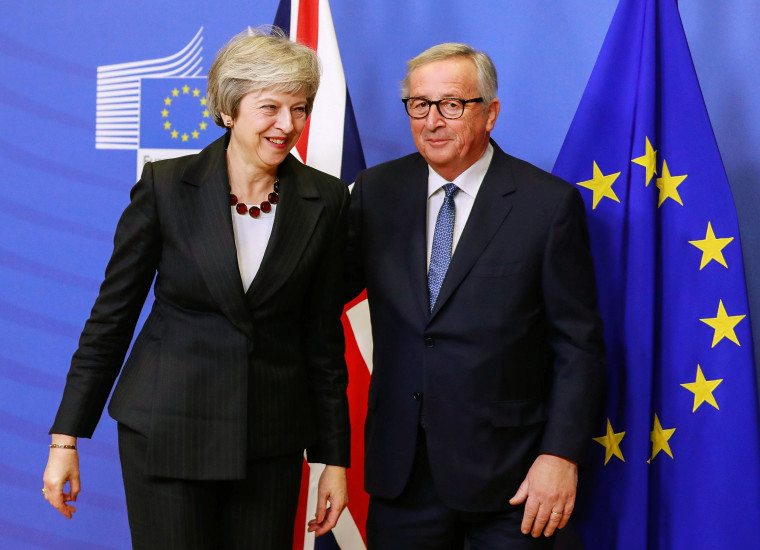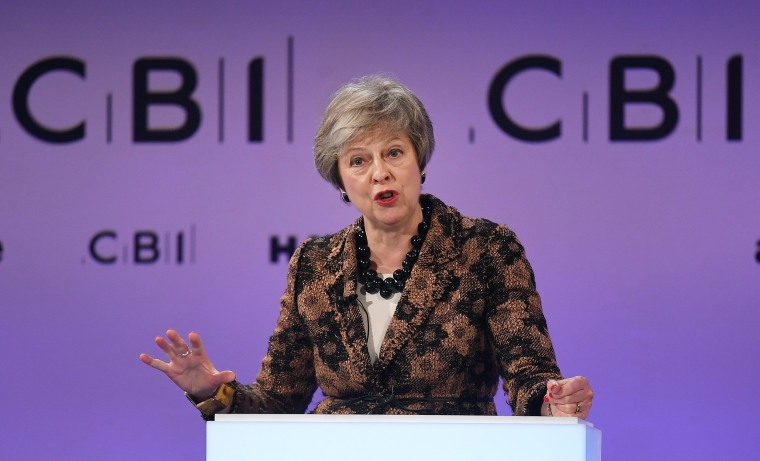On Sunday — barring any last-minute dramas — the leaders of the 28 countries that make up the European Union will give their approval to a deal to see their numbers reduced to 27, as the United Kingdom finally makes “Brexit” official.
The meeting will be a seismic moment after nearly two-and-a-half years of often ill-tempered wrangling, ultimatums and negotiation — but even though it weighs in at around 600 pages, it might mean very little indeed.
On the EU side, the deal has to be agreed by each national leader and by the European Parliament, and different countries have their own concerns, whether around fishing rights, the border between the U.K. and the Republic of Ireland, or the future of the tiny British overseas territory of Gibraltar, over which Spain claims sovereignty.
That’s messy enough, but is nothing compared to the nightmare U.K. prime minister Theresa May faces in getting the deal through her own parliament. Her problem is that while the deal addresses many of the headaches of leaving the EU — and avoids the chaos that would follow if the U.K. left the union without a deal at all — it doesn’t really please anyone.
The deal restricts the U.K.’s ability to make new trade deals outside the E.U., requires the U.K. to make around £40 billion in payments to the E.U. in future years, and contains few guarantees over the future long-term relationship between the U.K and the E.U.
Because of this, May faces almost impossible parliamentary math when trying to get her deal ratified: More than 70 members of parliament from her own party have publicly pledged to vote against the deal.
Given that her party already governs without a majority — they have relied on support from the Northern Irish DUP party, who are also against the deal — this leaves May relying on dozens of votes from the opposing parties, which no one (save her) believes she’ll be able to muster.

If May is in denial about the prospects of her deal passing, though, she’s not alone.
Most MPs and supporters of Labour, the main opposition party, are against Brexit and even support efforts to reverse the referendum to leave the E.U. at all — but its leadership has instead promised that they could negotiate a better deal to rescind their E.U. membership if they were to take over the government in an emergency early election. (The prospect of such an election is roughly as likely as Donald Trump suddenly declaring he loves Obama’s Iran deal, and E.U. leaders have made it clear that they do not plan to renegotiate a new deal.)
Right-wingers in May’s own party, in fact, launched a failed attempt to oust her earlier last week — the first step of a bid to replace her with a leader from their faction of the party whom they also claimed would be able to renegotiate the deal May achieved. (Again, the E.U has made it clear that the option to renegotiate is not on the table.)
Elsewhere, left-leaning campaigners are trying to gather political support for a People’s Vote — a second referendum — to try to reverse the result of the first one, in which the U.K. people decided to leave the E.U. This, too, is a remote prospect: Not only do neither of the leaders of the two biggest parties support the effort, organizing a referendum would likely require a general election and then a 24-week period to plan and fairly conduct the referendum. No leader of May’s Conservative party could ever realistically survive calling for either such a vote.
And even getting a new referendum before the people of the U.K. would require the EU to extend the deadline date by which the U.K. must leave the E.U. — currently locked in as the March 29, 2019 — 18 weeks from Friday. Changing the deadline might be possible, but is far from guaranteed.
The result of all of this mess and division is that U.K. politics are now paralyzed with indecision, even as the country plunges ever closer to that hard deadline (by which, if no deal has emerged, the U.K. would leave the E.U. and all of its major treaties with no alternative arrangements in place).
This could leave planes grounded, vital medical and food supplies restricted, shut-down shipping and even power shortages across the country — but so far, no option to avoid it can command a majority of parliament or of the country.
This is the situation facing Theresa May on Sunday: It looks like she will be able to sit opposite her 27 E.U. counterparts and agree to a deal. But she knows, as do the other E.U. leaders, that she will face a far tougher task selling it at home.
The U.K. — a nation which in living memory was administering the largest empire in the history of the world — is at present a country where the deluded are fighting with those in denial. It could all end very badly indeed.



